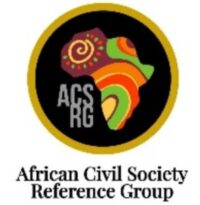ACSRG advocates stronger FGM laws, enforcement in Africa
By Philip Yatai
The African Civil Society Reference Group Inc (ACSRG), has called for the strengthening and full enforcement of anti- Female Genital Mutilation (FGM) laws in Africa.
The group made the call in a statement signed by a member of its Board of Directors, Mr John Ede, to commemorate the 2025 International Day of Zero Tolerance for FGM.
In the statement made available to the News Agency of Nigeria (NAN) in Abuja on Friday, that group said that the move would close legal loopholes and hold perpetrators accountable.
It added that the legal frameworks should be complemented by comprehensive awareness campaigns that respect cultural heritage, while safeguarding the rights of girls.
The group pointed out that FGM was deeply rooted in cultural, religious, and social traditions, with no medical or health benefits – only lifelong consequences.
ACSRG said that the practice leads to severe health complications, including infections, chronic pain, childbirth complications, psychological trauma, and even death.
It added that beyond the physical harm, FGM entrenches gender inequality, limits educational and economic opportunities for women and girls, and violates international conventions on human rights.
“While progress has been made in many countries, over 200 million girls and women have already undergone FGM, and 4.3 million more are at risk in 2024 alone.
“Without urgent intervention, this number could rise to 4.6 million annually by 2030, making the elimination of FGM an urgent global priority,” the statement said.
ACSRG reaffirmed its unwavering commitment to the global action to end the harmful practice of FGM, describing it as a “grave human rights violation.”
It stressed that the practice deprives millions of women and girls of their dignity, bodily autonomy, and the right to a life free from violence.
The group also called for the promotion of community-led advocacy and dialogue to drive sustainable change within affected communities.
It urges traditional and religious leaders, parents, and young people to champion positive cultural shifts that protect girls and promote alternative rites of passage that uphold dignity and tradition without harm.
ACSRG equally called for increased investments in education and awareness creation on the dangers of FGM in schools, healthcare centres, and communities.
According to the organisation, girls, families, and local leaders need access to culturally sensitive and evidence-based information that challenges myths and promotes gender equality.
“There is also the need to provide comprehensive support for survivors. Women and girls who have experienced FGM must receive medical, psychological, legal, and economic support to recover and rebuild their lives.
“Healthcare systems must be equipped to provide specialised treatment for FGM survivors, ensuring access to quality reproductive and mental health services.”
The group also advocated for stronger regional and global collaboration among African nations and international bodies.
This, it said, would coordinate anti-FGM efforts, share best practices, and increase funding for grassroots organisations leading the fight against FGM.
On zero tolerance and a future free from FGM, ACSRG noted that ending FGM was not just an African or women’s issue, but a global human rights imperative.
According to the group, achieving zero FGM requires bold leadership, sustained advocacy, and collective action at every level of society.
“Therefore, ACSRG, a leading platform addressing issues affecting women and children across Africa, stands in solidarity with survivors, activists, policymakers, and communities working tirelessly to eliminate FGM.
“We must continue to amplify voices, push for stronger policies, and create a world where every girl grows up free from harm, with the right to control her own body, future, and destiny.” (NAN)
Edited by Abiemwense Moru




